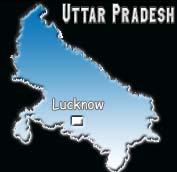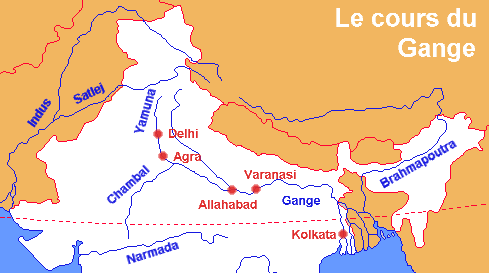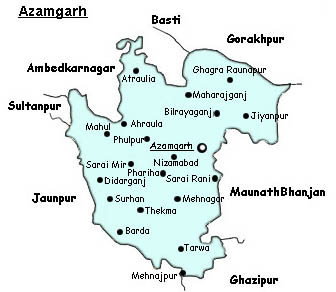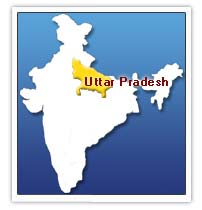varanasi : Jun 30 08:45 ANI By Girish Kumar Dubey
With heavy rains lashing continuously for the past two days, water level in sacred rivers of Ganges and Yamuna advances in the holy town of Allahabad in northern India's Uttar Pradesh state.
The flood has adversely affected the pilgrims, who flock in large numbers throughout the year to the holy town.
"The situation here is very serious. We are very much worried about this. The most important thing is that the Sangam (a confluence of three sacred rivers-Ganges, Yamuna and Saraswati) has shifted to some other place. It has shifted towards north," said Gopal Tyagi, a local.
Meanwhile, the heavy rains have also caused floods in Varanasi city of the state.
Pilgrims complained that they could not take holy-dip due to the rise in water level in the holy Ganges.
"The water level has increased due to the continuous rains. We are facing a lot of problems in travelling from one place to another and it is also causing problems for the pilgrims who wish to take holy dip in the river," said Shyam Sharma, a pilgrim.
Floods situations are a common phenomenon in India during the annual monsoon season, which is in fact vital for South Asia's farm dependent economy.
With the onset of monsoon, the water level in Ganges and Yamuna rivers enhances due to continuous heavy downpour for the last two days in northern India.
PLEASE NOTE: THIS EDIT CONTAINS CONVERTED 4:3 MATERIAL
VARANASI, UTTAR PRADESH, INDIA (JUNE 30, 2011) (ANI-NO ACCESS BBC)
7. DEVOTEES STANDING NEAR RIVER GANGA
8. BOATS FLOATING
9. WATER IN THE RIVER
10. BUILDINGS HALF-SUBMERGED IN WATER
11. BOATS FLOATING
12. PEOPLE SITTING
13. MEN ROWING BOATS
14. (SOUNDBITE) (Hindi) SHYAM SHARMA, A PILGRIM, SAYING:
"The water level has increased due to the continuous rains. We are facing a lot of problems in travelling from one place to another and it is also causing problems for the pilgrims who wish to take holy dip in the river."
15. A MAN STANDING ON A BOAT
16. (SOUNDBITE) (Hindi) GOPAL TYAGI, A LOCAL, SAYING:
"The situation here is very serious. We are very much worried about this. The most important thing is that the Sangam (a confluence of three sacred rivers-Ganges, Yamuna and Saraswati) has shifted to some other place. It has shifted towards north."
 Bhadohi (
Bhadohi (


 Azamgarh (UP), Oct 3: The Mumbai
Azamgarh (UP), Oct 3: The Mumbai  (Sonbhadra) U. P., June 20 : Development activities in Sonbhadra
(Sonbhadra) U. P., June 20 : Development activities in Sonbhadra 
 Sonebhadra (UP), Mar 17: Around 10,000 tribals in
Sonebhadra (UP), Mar 17: Around 10,000 tribals in 

